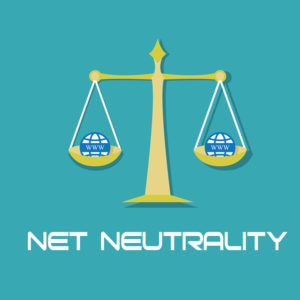A large majority of public comments submitted to the Federal Communications Commission on its plan to repeal net neutrality rules oppose reigning in the open internet safeguards, a data analytics firm says. The problem is, most of them aren’t real.
According to an analysis of 21.7 million public comments by Emprata, a small Washington, D.C.-based data analytics firm, examining the FCC’s plan to scale back the Obama-era rules, 60 percent of the total comments are against the plan while 39 percent support it.
On the surface that reflects the results of the previous batch of comments in 2014, and eventually led to passage of the rules the following year. But that’s before digging into the substance of the comments themselves, millions of which have already been deemed fake by groups for and against the plan.
While previous analyses estimated as many as a third of the comments are fake, Emprata, in a study released Wednesday, says its much more — over 20.684 million of the 21.766 million comments it analyzed ahead of Wednesday’s comment deadline.
The firm says those 20-plus million “can be attributed to email domains that appear to be artificial, international filings, form letters, and duplicative submissions.”
“As a result, any conclusions that one might draw from the docket would be based on the subset of data considered ‘real,'” the firm says.
The majority of comments, 20.33 million, were submitted using form letters. However the overwhelming majority of comments using unique/non-form letter language — 1.77 million — oppose the repeal plan. Only 24,000 unique comments support it. Emprata describes the difference as “notable,” but goes on to add those unique comments make up less than 10 percent of the total docket.
Comments that appear generated from FakeMailGenerator.com, which describes its domains as “temporary” and “disposable,” make up the largest percentage of any set of comments at 7.75 million, or 36 percent. Emprata says “virtually all of those comments oppose repealing Title II,” or the legal authority the Obama-appointed FCC used to underpin its 2015 net neutrality rules.
Title II of the Telecommunications Act gives the FCC power to classify services like telephone and internet as essential public utilities, along with authority to heavily regulate them from becoming monopolies. Republicans, including current FCC Chairman Ajit Pai, don’t necessarily oppose net neutrality rules barring internet providers from blocking, throttling, and prioritizing content, but the use of Title II to enforce them (though Pai’s plan also questions the need for those rules).
He and other Republicans along with the industry itself believe Title II power, including the ability to regulate prices, is driving down investment internet providers need to improve and expand their networks, especially in rural, poor, and underserved parts of the country.
“Assuming that all comments submitted from these artificial email domains are illegitimate, general sentiment favors repeal of Title II (61 percent for, 38 percent against),” Emprata reports.
It goes on to say 1.72 million comments came from international addresses (99.4 percent opposing repeal) and 9.93 million were filed fusing the same email and physical address, meaning many filed multiple comments.
“Excluding duplicate comments – taking only the first comment filed for a particular email/physical address combination – shows that the remaining comments favor repeal of Title II by a margin of 86 percent to 14 percent.”
Broadband for America, an anti-Title II group, paid for the study. The organization is made up of internet service provider giants including AT&T, Comcast, CenturyLink, Charter, and other broadband industry trade groups and lobbyists.
“The results of the report shed light on the questionable, fictitious sources of many of the comments, specifically the 7.75 million comments that were submitted using a known fake email generator,” the group said Wednesday. “The findings further underscore the need for congressional action to address outdated utility regulations and ensure advances in internet technologies are not hindered.”
Broadband for America along with a growing number in the internet industry, Republicans, congressional Democrats, and even Pai support Congress stepping in to codify net neutrality in law, rather than leaving it to federal agencies to reverse course every time there’s a party change in the White House.
“We stand ready to work with lawmakers on both sides of the aisle to ensure durable net neutrality principles are enshrined into law,” a statement from Broadband for America reads.
Commenters have until the end of Wednesday to submit final reply comments to the FCC on the repeal plan. The House of Representatives has scheduled a hearing on net neutrality for Sept. 7 to begin discussing potential legislation. The CEOs of Facebook, Google, Amazon, and Netflix — supporters of the rules — have been invited to attend, but none of responded to Congress’s invitation or InsideSources’ requests for comment.
Comcast, Verizon, AT&T, and Charter Communications CEOs were also invited, but have yet to confirm their attendance. None responded to a request for comment except AT&T. The wireless carrier said it’s checking CEO Randall Stephenson’s schedule.

